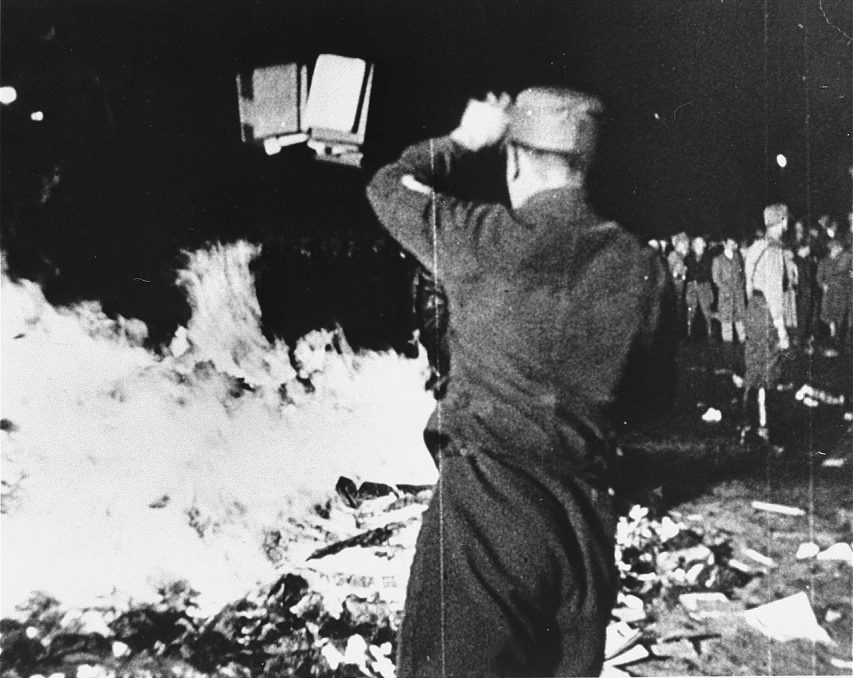Table of Contents
- Introduction
- Burning Books 213 B.C.
- Persecuting Philosophers
- Banned Books & Bible
- Books lost forever
- Inquisition Censorship
- Index Librorum Prohibitorium
- Copernicus & Galileo
- Darkness in Enlightenment
- Revolution & Banned Books
- Colonialism & Book Bans
- New Nation Censorship
- Nazi Germany Book Burning
- USSR Banned Books
- McCarthyism Book Banning
- 21st Century Book Bans
- Banned Books Battles
- Digital Age Book Banning
- World Wide Book Banning
- Book Banning is Bad
- The Future of Book Banning
- Looking Back in History
- Discover New Worlds
Nazi Germany Book Burning
Don't Confuse Us With Facts

Book burnings during Nazi Germany were a disturbing suppression of ideas. Adolf Hitler’s regime orchestrated this chilling event in the 1930s and 1940s. On May 10, 1933, Germany’s public squares were illuminated by ominous fires. These fires were not ordinary; the flames consumed freedom, knowledge, and diversity. Thousands of books considered ‘un-German’ by the Nazis were thrown into these fires, their ideas silenced by the crackling flames.
The Nazis deliberately destroyed cultural artifacts along with their book burnings. The targeted books covered various topics, including Jewish, communist, pacifist, and religious texts, as well as works contradicting Nazi ideology. Even renowned authors like Helen Keller, Ernest Hemingway, and Sigmund Freud faced blacklisting.
So why did the Nazis burn books? The answer lies in their quest for complete control over German society. Books have the power to question, educate, and challenge authority. By burning books, the Nazis aimed to eradicate any thoughts, philosophies, or facts that threatened their grip on power.
These book burnings were part of the broader process of ‘Gleichschaltung,’ or ‘forced conformity.’ The Nazis sought to establish a uniform society strictly adhering to their own worldview. There was no tolerance for differing perspectives, and books that offered alternative viewpoints were ruthlessly eliminated.
Despite symbolizing oppression, the book burnings also sparked resistance. Many recognized this act as an attempt to control people’s minds. Some writers, intellectuals, and ordinary citizens took great risks to save, hide, or smuggle books, preserving the ideas the Nazis tried to extinguish.